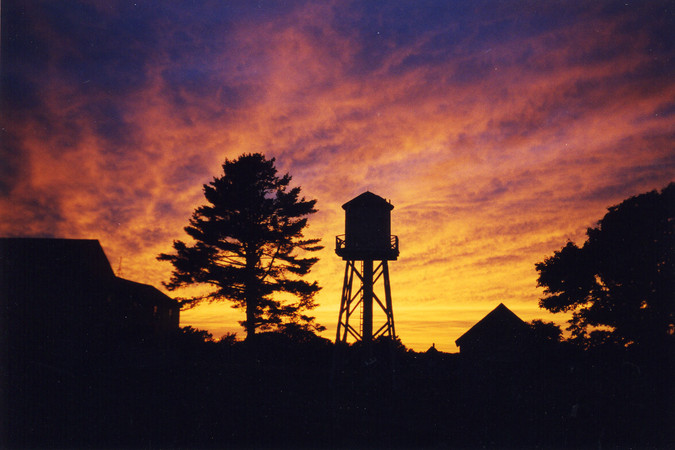The Wrack
The Wrack is the Wells Reserve blog, our collective logbook on the web.
The Wrack is the Wells Reserve blog, our collective logbook on the web.

The following was originally published in the Biddeford-Saco Journal Tribune Thursday edition, 8/22/13:
Wendell Berry said “do unto those downstream as you would have those upstream do unto you.” Situated at the mouths of three rivers, the Wells Reserve at Laudholm is downstream from most of York County. This summer, I’ve been thinking a lot about what’s upstream, particularly farms.
At first glance, Maine doesn’t seem ideal for farming. Our colonial history is a litany of famines and failed harvests. We get some of the least sun of the Lower 48; our soils are the rock-filled remains of mile-high glaciers. Winters, though shorter than they used to be, still bookend a shockingly brief growing season. Why would anyone think of farming here?
And yet they do, and in increasing numbers. Add a little lime, and our acidic soils start to bear fruit. Maine leads the world in brown egg and blueberry production, and what is Aroostook if not synonymous with spuds? As a further bonus, Maine’s farmers were going organic and sustainable decades before those words had even sprouted in the consumer vocabulary.
Folks at the State Department of Agriculture, the UMaine Cooperative Extension, and the Maine Organic Farmers and Gardeners Association envision a future for Maine that includes more agriculture. With 1.25 million acres under cultivation, we’re still small potatoes compared to the nation’s breadbasket, but at least for New England, Maine has the potential to meet an increasing share of the region’s food needs. The Maine Farmland Trust says that we could, with enough capital and labor, boost production to nearly 4 million acres and virtually eliminate our reliance on produce, dairy and meats imported “from away.”
Farming is destined to be a larger part of Maine’s future. Downstream, I have some questions.
Will the water quality of our rivers and bays survive a quadrupling of acreage? And is our climate reliable enough to invest in farming? While the greenhouse gases our society is releasing today will, downstream in time, create a longer growing season here in Maine, do we foresee any other benefits from global warming?
The Wells Reserve at Laudholm, a former farm, is evidence that farming in Maine is not the easiest row to hoe. Do this generation’s farmers have the perseverance for such a fickle, grueling occupation?
I expect they do. But do federal and state regulations still keep the bar too high for a return of the individual family farm? The Farm Bill languishes in Congress; to date, with the amputation of the bill’s nutrition assistance program, only cruelty seems to be making any progress in Washington. Other proposed rule changes will likely continue to favor large agribusiness over small farmers. If corporate growers return to this land of Rachel Carson, can they commit to farming pesticide-free?
I want farming to blossom to Maine. I want it to guarantee our food security, alleviate hunger, bring a new generation back to the land. These are questions I’m asking a panel of experts next week at the Reserve. I hope you’ll ask them too.
Nik Charov is president of Laudholm Trust, the nonprofit partner of the Wells National Estuarine Research Reserve in Wells, Maine. His Journal Tribune column, “Between Two Worlds,” ventures forth from the intersection of art and science, past and future, animal and vegetable. More at wellsreserve.org/twoworlds.